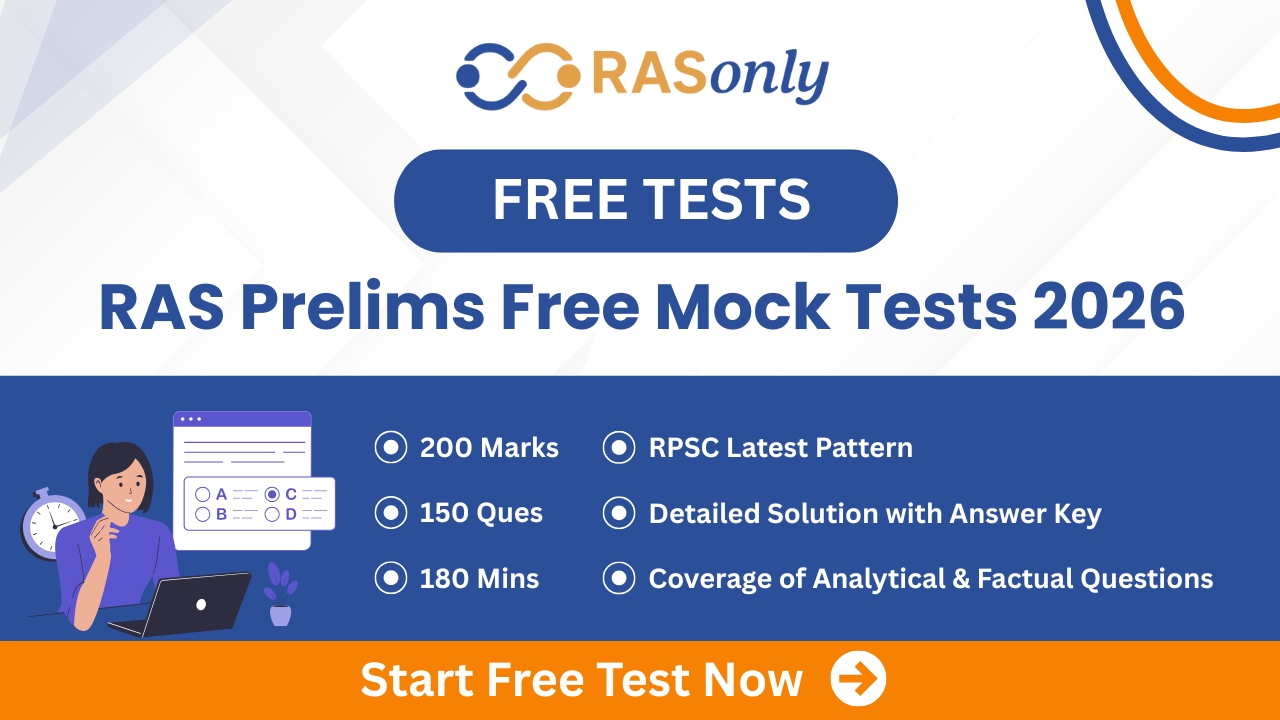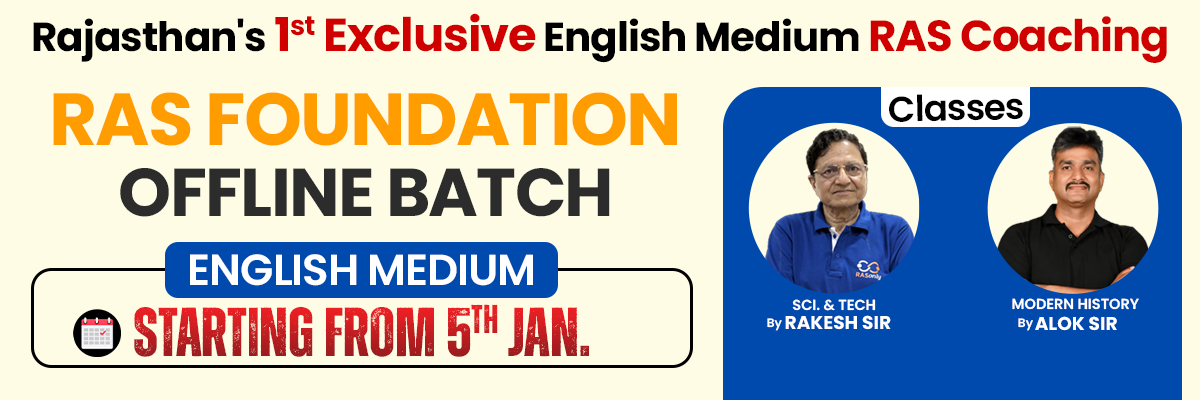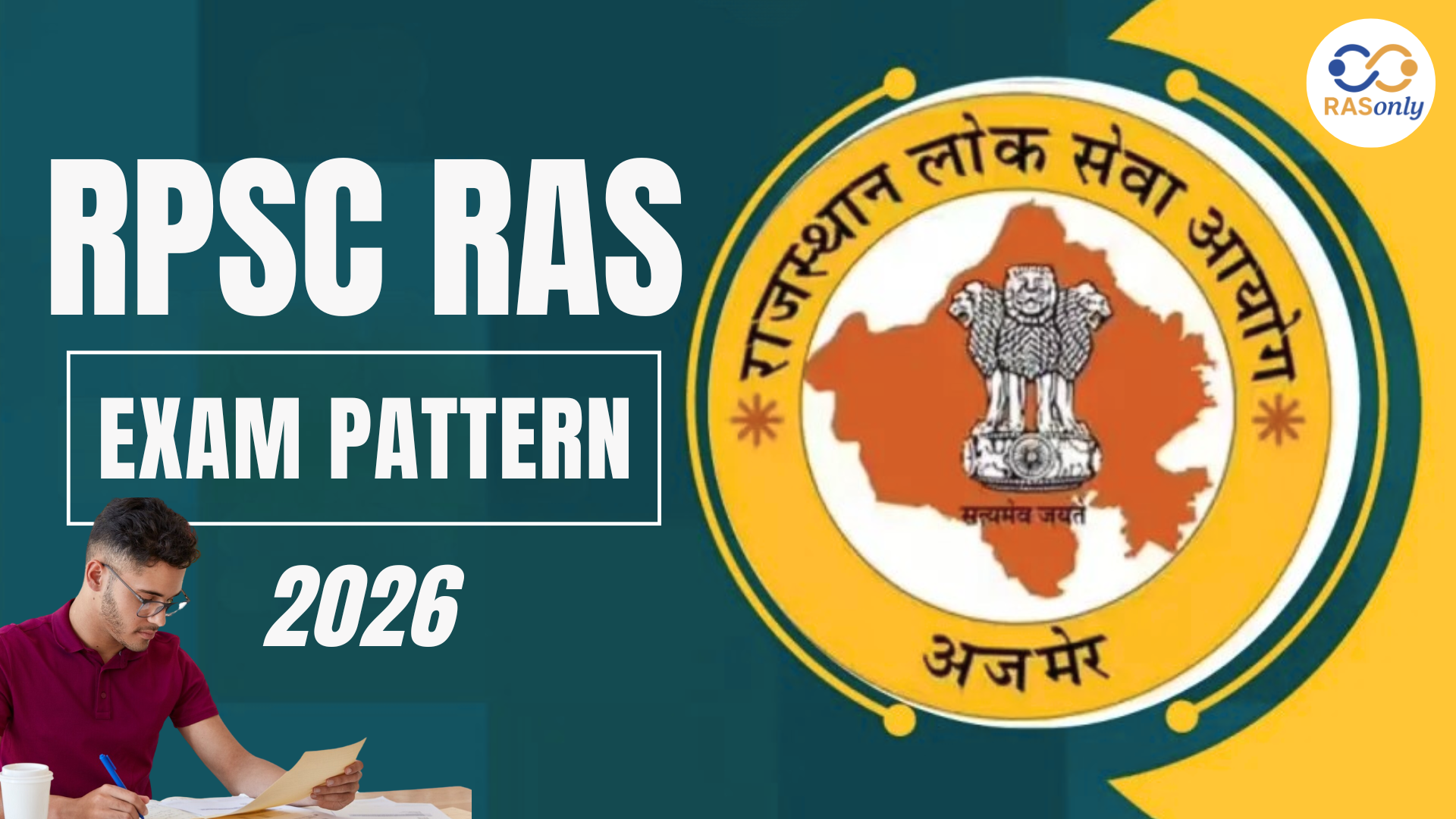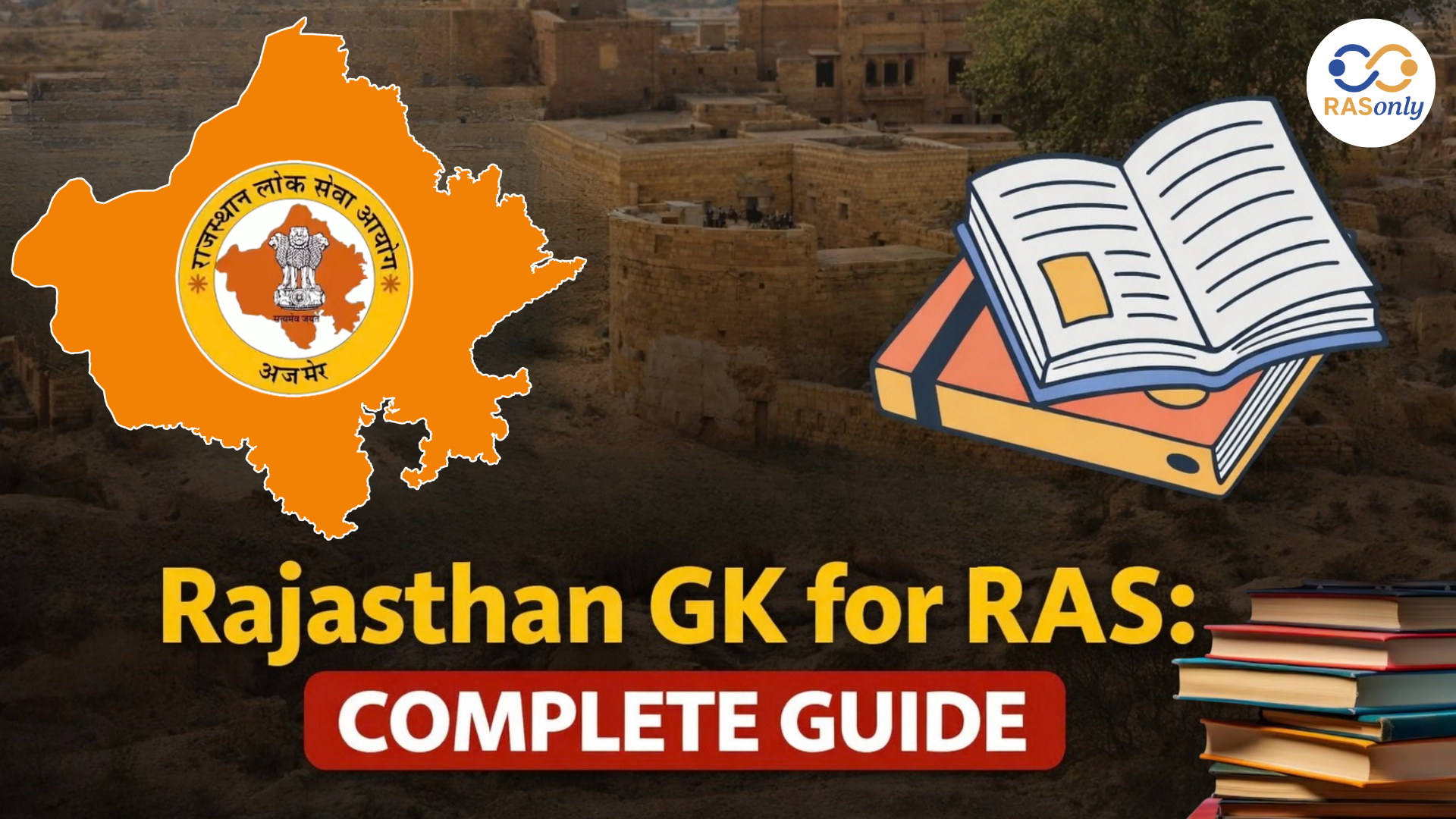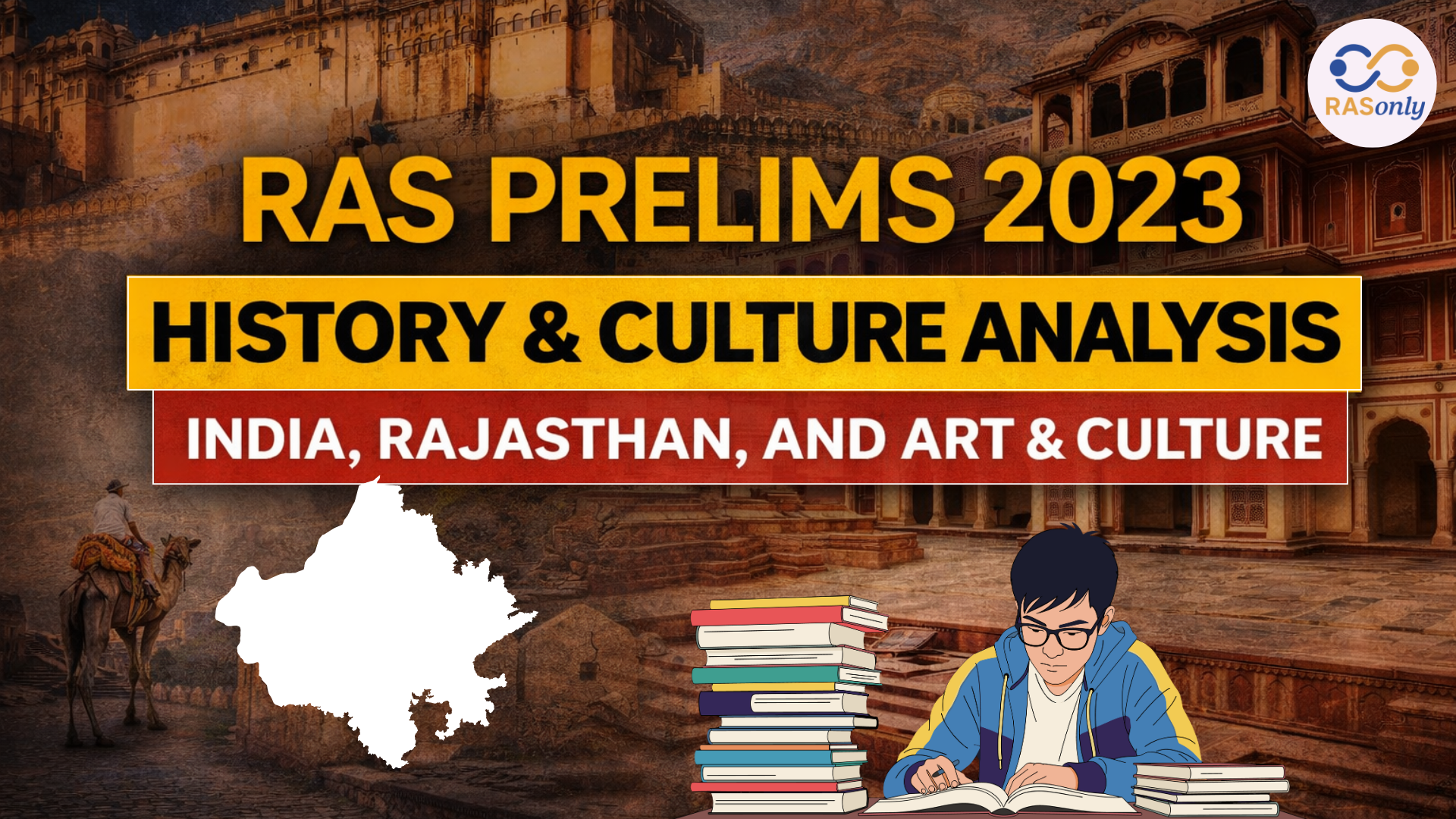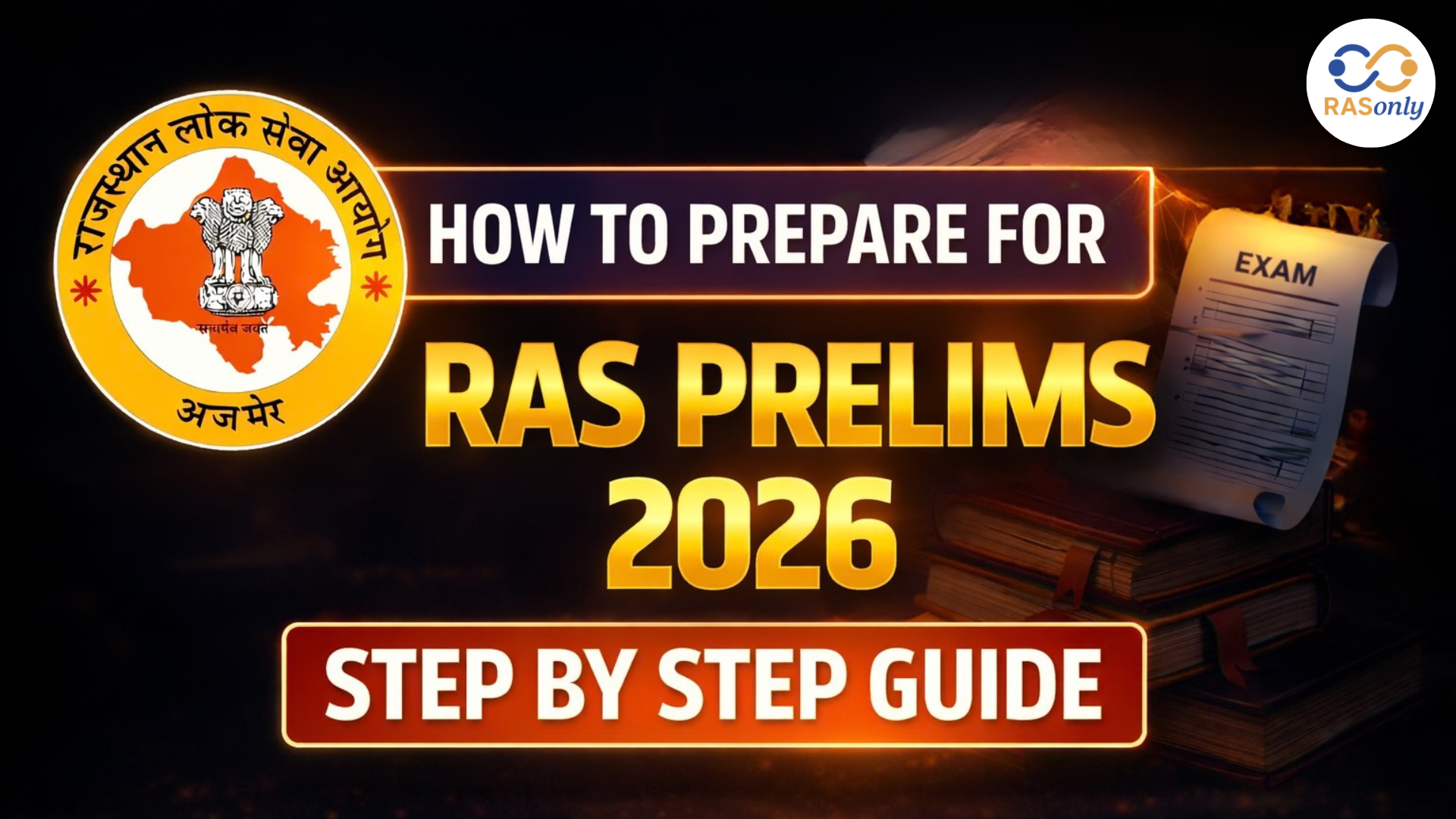RPSC RAS 2026 Subject Wise Exam Pattern for Prelims, Mains & Interview Details
- >
- RAS Mains Exam Date
- >
- RAS Mains June 18 Exam Analysis: Difficulty Level, Strategy & More
RAS Mains June 18 Exam Analysis: Difficulty Level, Strategy & More

Get in Touch with RASonly!

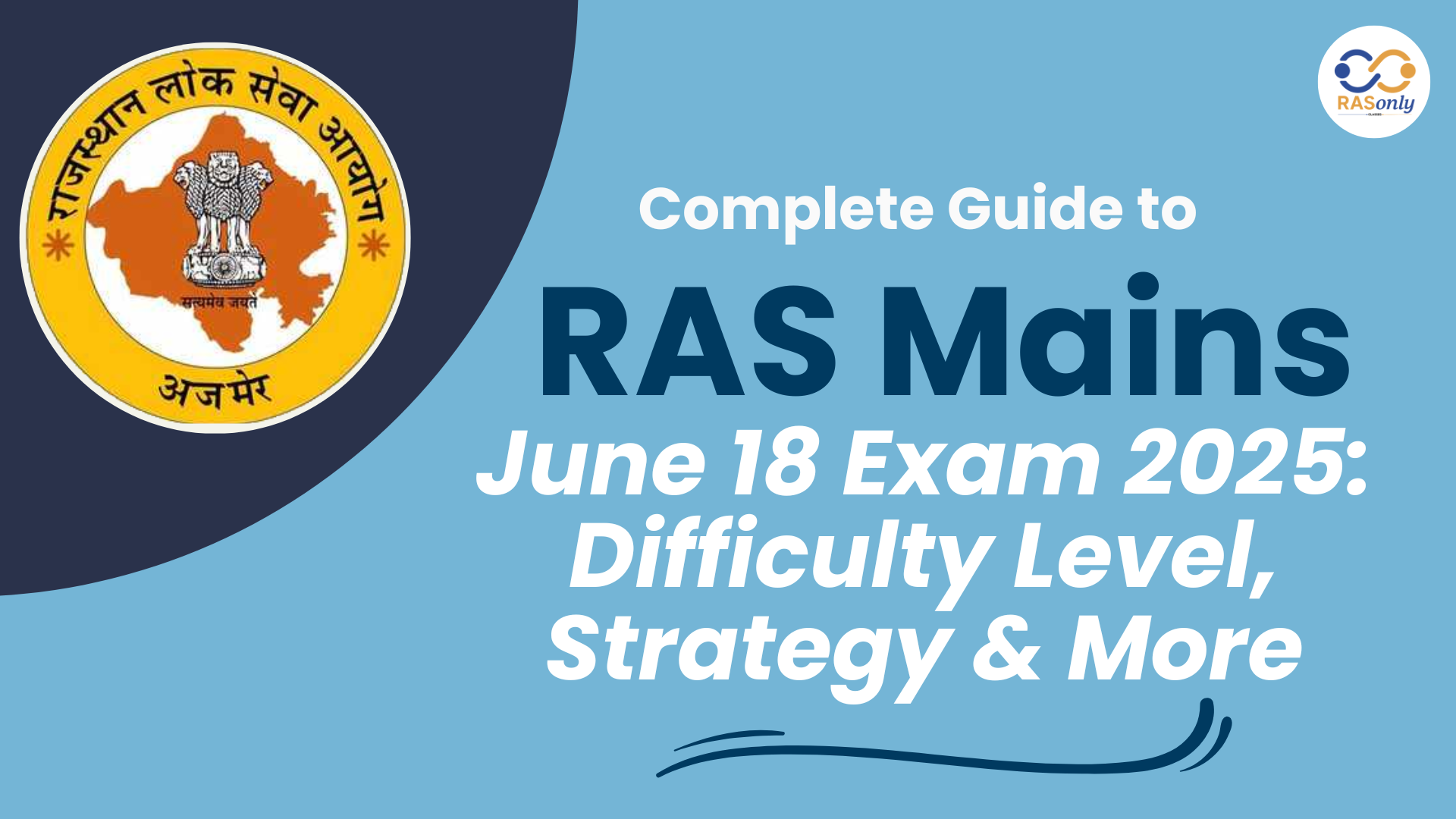
RAS Mains June 18 Exam Analysis is a critical stage for hardworking applicants who want to secure a reputable post in the Rajasthan Administrative Services. Since this exam is only taken after the GS papers are offered on June 17, learners are keen to examine the level of difficulty, important ideas or methods, and the type of questions to perform well. This ultimate guide provides information on the RAS Main 2025 paper pattern, good attempt strategies, key topics, and time management hints, applicable to both General Studies Paper III and IV. It is possible to considerably increase your chances of success, having learnt about the recent tendencies and the pitfalls common to them. Preparing to review or strategize on your last day? This guide is your ticket to acing the RAS Mains June 18 Exam.
RAS Mains Paper Download Link PDF
| Paper Number | Paper Code | Download Link |
|---|---|---|
| Paper 1 | 101320 | Download Official PDF |
| Paper 2 | 206658 | Download Official PDF |
| Paper 3 | 307632 | Download Official PDF |
| Paper 4 (Hindi) | 408303 | Download Official PDF |
RAS Mains June 18 Exam: Overview
The RAS Mains June 18 Exam Analysis had a systematic pattern like the June 17 General Studies papers. The paper also has high chances of testing the depth of knowledge on the Rajasthan-specific issues, governance, ethics, and administrative skills among candidates. Applicants must concentrate on clarity of concepts, clear writing, and time management. According to past patterns and professional experience, essay-type descriptive questions, case studies, and questions demanding a balanced position of view may be present in the June 18 paper. Familiarity with the latest events, policies of the government, and ethical models will be critical for doing well in this segment of the RAS Mains Exam 2025.
| Exam Name | Paper Date | Paper Type | Marks | Duration |
|---|---|---|---|---|
| RAS Mains Exam 2025 | June 18, 2025 | General Hindi | 200 Marks | 3 Hours |
| RAS Mains Exam 2025 | June 18, 2025 | General English | 200 Marks | 3 Hours |
RAS Mains June 18 Exam: GS Paper III and IV Pattern
The RAS Mains GS Papers III and IV are a part of the descriptive evaluation process, with 200 marks and 3 hours each. GS Paper III has more analytical thinking and current affairs based on Indian polity, public administration, economic policies, science and technology, environment, and disaster management. It is structured such that short, medium, and long questions are interposed to gauge depth in subjects.
| Paper | Part | Questions | Marks/Question | Word Limit | Total Marks |
|---|---|---|---|---|---|
| GS Paper III | A (Short) | 25 | 2 | 15 words | 50 |
| B (Medium) | 16 | 5 | 50 words | 80 | |
| C (Long) | 7 | 10 | 100 words | 70 | |
| Total | 200 | ||||
The GS paper IV, however, concentrates on language proficiency, General Hindi & General English, which tests grammar, comprehension, translation, précis, essay writing skills, and letter writing skills. Clarity, coherence, and presentation skills are a requirement of scoring well on both papers.
| Paper | Part | Total Marks |
|---|---|---|
| GS Paper IV | A (Grammar & Usage) | 70 |
| B (Comprehension, Translation & Precis) | 80 | |
| C (Composition & Letter Writing) | 50 | |
| Total | 200 |
RAS Mains June 18 Exam: Difficulty Level
RAS Mains June 18 Exam 2025 was of a moderate difficulty level, generally, and the questions were considered to be well-balanced yet conceptually solicitous by the majority of the candidates. This was not a very tricky paper, but it needed clear thinking, firm fundamentals, and a well-organized written work. The paper was manageable by the candidates who had gained regular experience in descriptive writing and mastered grammar, comprehension, and essay techniques. The questions were direct and evaluative, especially within essay and precis writing. The General Hindi part was quite easy, whereas the general English part had a few questions on the grammatically subtle side. Time management was prominent in the negotiation of all questions.
General Studies Paper III: Expected Difficulty Level
The General Studies Paper III is usually considered to be among the more data-oriented and application-based papers of the RAS Mains Exam. According to past patterns, paper III in 2025 may be of a moderate to high difficulty level. The paper usually covers such areas as the Indian economy, agriculture, science & technology, environment, and disaster management. There can be statistical questions and interpretation of questions, critiques of government plans, and testimonies on long-term development. A few case-study variant nature questions concerning the rural economy or technological intervention in the governance might also surface, and this would demand both subject knowledge as well as a critical thinking capacity. Aspirants with an awareness of current policies, technical happenings, and the progress of economic surveys will be advantaged.
| Aspect | Details |
|---|---|
| Overall Difficulty Level | Moderate to High |
| Nature of Paper | Data-oriented, Application-based |
| Key Subjects Covered | Indian Economy, Agriculture, Science & Technology, Environment, Disaster Management |
| Question Types | Statistical interpretation, Policy analysis, Development critique, Case studies |
| Skills Required | Subject knowledge, Analytical thinking, Critical reasoning |
| Advantage For | Candidates are aware of current policies, economic surveys, and tech updates |
| Challenge Area | Unexpected case studies & multi-layered analysis-based questions |
General Studies Paper IV: Expected Difficulty Level
General Studies Paper IV, which is subject-based in terms of ethics, Spencer, and aptitude, will be a highly conceptual and reflective kind. This paper is regularly underestimated, as its difficulty depends on its abstract basis and the request of systematic and ethical thinking. In RAS Mains 2025, Paper IV can include real-life administrative situations, dilemmas, and value-based questions that challenge the moral compass, decision-making abilities of a candidate, as well as knowledge about ethical frameworks. Individuals who have a good understanding of ethical theories, in addition to applying practical models, and understanding articulation, would cope with this paper. The others would have difficulties ensuring relevance and logic in their answers.
| Aspect | Details |
|---|---|
| Overall Difficulty Level | Conceptual and Reflective (Abstract) |
| Nature of Paper | Ethics, Integrity, and Aptitude-focused |
| Key Components | Moral dilemmas, Real-life situations, Ethical case studies |
| Skills Required | Ethical reasoning, Structured articulation, Value-based decision making |
| Advantage For | Candidates with a good grasp of ethical theories & practical moral models |
| Common Challenges | Maintaining relevance, Logical coherence, and Depth of reflection |
| Often Underestimated Because | Abstract nature leads to a false sense of ease |
RAS Mains June 18 Exam: Good Attempts & Time Management
Time management is a crucial component in the RAS Mains June 18 Exam 2025, considering that the papers were descriptive. Candidates were required to use time adequately with the help of short, medium, and long form questions without compromising on the quality of answers. A positive effort in this paper did not only mean quantity but depth, framework, and readability. The average and satisfactory performance was considered to be an attempt of 80-85 percent of the paper, with well-structured and inspired responses. Applicants who had established beforehand their approach to writing, like the time to use on each section, how to outline longer ones, and how not to elaborate on short ones, were able to write the paper more productively and confidently.
General Studies Paper III: Good Attempts
A decent score in GS Paper III was in the range of 75-80 percent in the total question, having a well-researched answer that touches upon important points, life scenarios, and data relevant to it. Time was a bit tight on many candidates because such topics as economic policies, environmental governance, and technological applications are quite analytical. Individuals who put headings, bullet points, and highlighted important phrases enhanced serviceability and saved time. The medium and short answer questions were relatively easy, yet the lengthy questions needed organization and simplicity. Many could not see a rational decision through the end of all answers, and thus completing about 3842 or so, typical good answers out of 48 is considered a good shot.
| Aspect | Details |
|---|---|
| Good Attempt Range | 38–42 questions out of 48 (≈ 75–80%) |
| Focus Areas | Economy, Environmental Governance, Tech Policies |
| Answering Strategy | Use of headings, bullet points, and highlighted key phrases |
| Challenge | Time pressure due to the analytical nature of questions |
| Easy Sections | Short and medium-answer questions |
| Tougher Section | Long-form analytical responses |
| What Worked | Structured presentation, incorporation of data & real-life scenarios |
| Common Mistake | Lack of time to finish with logical conclusions in all answers |
General Studies Paper IV: Good Attempts
In GS Paper IV, going by the marks scale, about 35-40 out of a total of 48 questions was considered a good attempt, given more stress on qualitative attainment than its quantifiers. With this paper testing the rate of ethical reasoning and the capacity to judge based on values, candidates were required to be reflective and logically write, a process bound to take them longer on a question-by-question basis. Balanced views and practical solutions were especially necessitated by case studies or scenario-based questions. The short-answer format enabled many of the candidates to complete easily, whereas the long-answer section required a lot of attention and crispness. Individuals who had good examples either during governance or personal values did well. Trying to write most of the paper with honest and rational sound, even though a few are less in number, usually helped the candidate.
| Aspect | Details |
|---|---|
| Good Attempt Range | 35–40 questions out of 48 (≈ 72–83%) |
| Paper Focus | Ethics, Integrity, Administrative Aptitude |
| Evaluation Basis | Quality of ethical reasoning, value-based judgment |
| Answering Strategy | Balanced, reflective, logically structured responses |
| Easy Section | Short-answer questions |
| Tougher Section | Case studies and long-format answers |
| What Helped | Real-life examples from governance or personal values |
| Common Success Factor | Honest tone and rational clarity over quantity |
RAS Mains June 18 Exam: Important Topics
The RAS Mains June 18 Exam placed importance on the clarity of concepts and relevance to the current around all GS papers. Strategic preparation on issues that centred on Rajasthan, policy developments at the national level, and themes on governance through ethics gave the candidates a distinct advantage. The knowledge of past years' weightage and preparation, following social and economic trends on the rise, was a lifesaver. The papers were balanced in the sense that static and dynamic content on the papers was the same, so a topic-based approach of revising topics in a time-based method was more effective for aspirants wanting to optimize their performance.
General Studies Paper III: Key Topics
Paper III paid significant attention to the Indian economy, agricultural reforms, fiscal policy, public administration, science & tech applications, the climate policy. The visibility of disaster management, digital governance, and ecosystems of startups has also become available. Candidates who combined information in the Economic Survey and Budget and connected current events to the main theories scored higher. Clear ideation on such concepts as GST, MSP, Make in India, and sustainable development goals (SDGs) aided in developing analytical responses that could suit the new demands of the paper.
Read more at: RAS Mains Paper 3 - Comprehensive Science & Technology Notes
General Studies Paper IV: Key Topics
GS Paper IV focused on fundamental ethics, administrative values, integrity, and decision-making capability. The main subjects were ethical predicaments, governance policies, openness, mercy, and state service responsibility. Case studies and moral situations of practical lives required responses based on the practical application of ethical theories such as the deontological approach, consequentialism, and Gandhian ethics. Candidates scoring higher gave structured reasoning and referred to governance or personal value examples. Emphasis on empathy, integrity, and fairness was highly present in the paper.
Read more at: RPSC RAS Scheme & Syllabus 2024: Four Papers Descriptive / Analytical
RAS Mains June 18 Exam: Common Mistakes to Avoid
Even after proper preparation, numerous applicants scored unnecessary errors during the RAS Mains June 18 Exam that negatively affected their overall results. Common weaknesses included a failure to manage time, arrange long answers well, and avoid examples specific to Rajasthan. Additionally, numerous candidates overlooked the significance of revision and did not pay much attention to ethical profundity in GS Paper IV. Knowing these pitfalls, future aspirants will avoid a penalty to marks via strategy or presentation mistakes.
- Time Mismanagement: Spending too much time on a few long questions while leaving others incomplete.
- Poor Answer Structuring: Lack of use of headings, subheadings, and bullet points made answers less readable.
- Ignoring Rajasthan-specific Context: Not including relevant regional examples and policies, especially in Paper III.
- Surface-level Ethical Reasoning: In GS Paper IV, many wrote vague answers without clear ethical frameworks or personal reasoning.
- Skipping Mock Practice: Many didn’t practice enough full-length tests, leading to panic during the actual exam.
- Overlooking Current Affairs: Answers lacked updated data and references to recent reports or government initiatives.
- Weak Conclusion Writing: Failing to wrap answers with a conclusive remark or policy suggestion reduced impact.
Conclusion
RAS Mains June 18, 2025 Exam was not only about the subject knowledge but also the ability to have thoughts, time management, and thinking analytically. Traditional and modern themes were intermingled in the papers, and it required a tactical mind to navigate all the papers. The ones who struck the right balance between relevance and a conceptual grasp did so. Structured writing in GS Paper III, ethical reasoning in GS Paper IV, success here was determined by the level of preparation and quality of presentation. The next candidates should exit their lessons as a result of this attempt to have more readiness in future RAS Mains.
Now Start Preparing for RAS 2024 Interview cycle with RASonly
FAQs
Post Category
- RAS Salary
- Result
- RAS Admit Card
- RAS Job
- RAS Cutoff
- Preparation Tips
- RAS Answer Key
- RAS Exam Analysis
- RAS Syllabus
- RAS Previous Year Papers
- RPSC RAS Exam Pattern
- RAS Interview
- RAS Mains Exam Date
- RAS Vacancy
- RAS Test Series
- RAS Best Books
- RAS Preparation Resources
- RAS Coaching Centre
- History
- Polity
- Geography
- Economics
- Science
- Art and Culture
- RPSC RAS Application Form
- RPSC RAS Notification
RASonly Interview Guidance Program

Mr. Ashok Jain
Ex-Chief Secretary Govt of Rajasthan
- IAS officer of the 1981 batch, Rajasthan cadre.
- Passionate about mentoring the next generation of RAS officers with real-world insights.
- Got retired in Dec 2017 from the post of Chief Secretary of the state of Rajasthan.

Mr. Guru Charan Rai
Ex-ASP / SP in Jaisalmer
- Guru Charan Rai, IPS (Retd), retired as Inspector General of Police (Security), Rajasthan, Jaipur in 2017.
- Served as ASP and SP in Jaisalmer, Nagaur, Sri Ganganagar, Sawai Madhopur, Dausa, Sikar, and Karauli.
- He also held key positions as DIGP and IGP in the Law and Order division.

Mr. Rakesh Verma
Ex-IAS Officer, B.Tech, MBA, and M.A. (Economics)
- IAS officer of the 1981 batch and retired in Chief Secretary Rank.
- Civil servant of high repute and vast experience.
- Has been teaching UPSC CSE subjects for the last six years.
Related Post
Daily Current Affairs for RAS Exam Preparation 2026
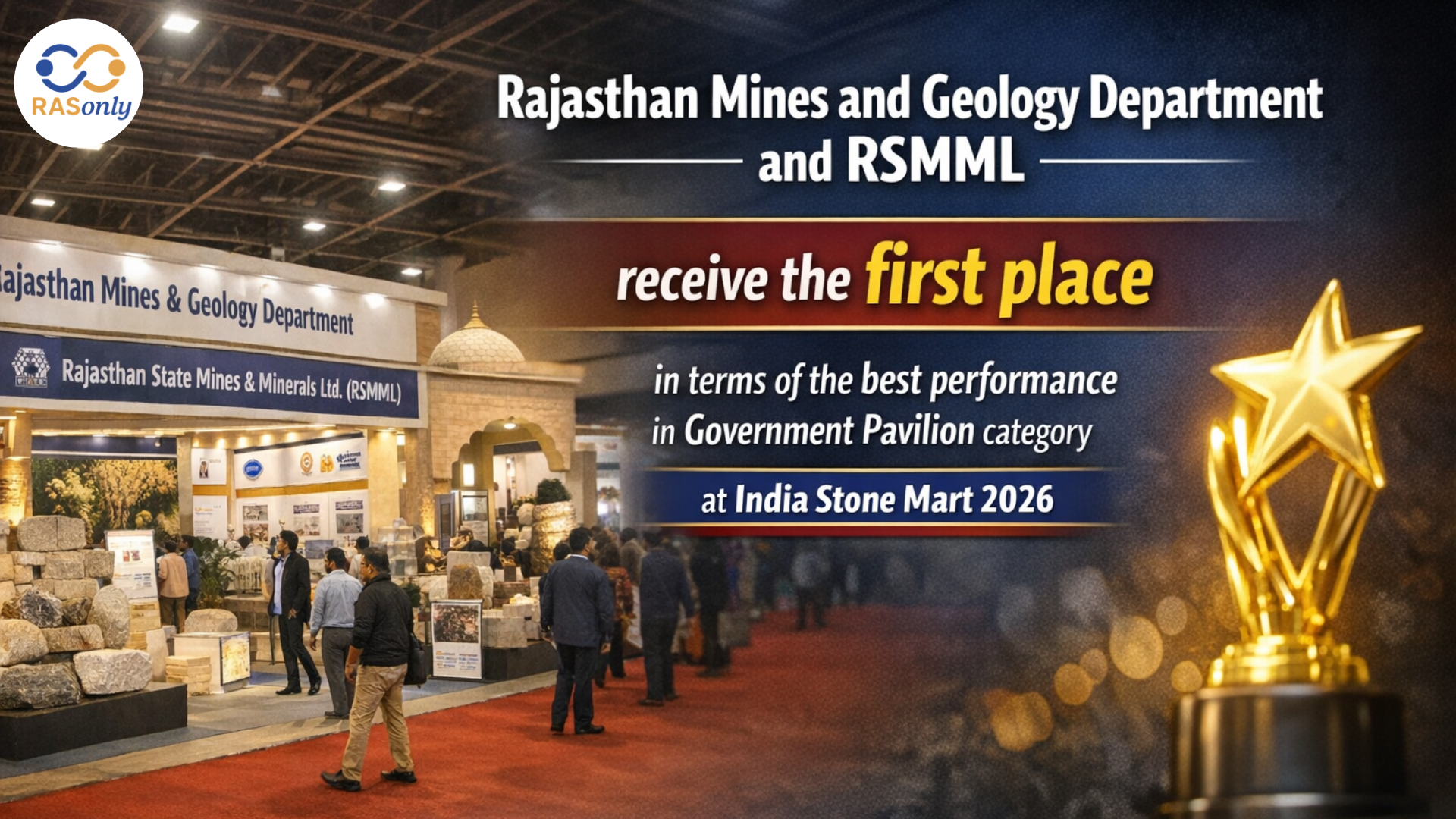
Rajasthan Mines & RSMML win Best Pavilion at India...
February 10, 2026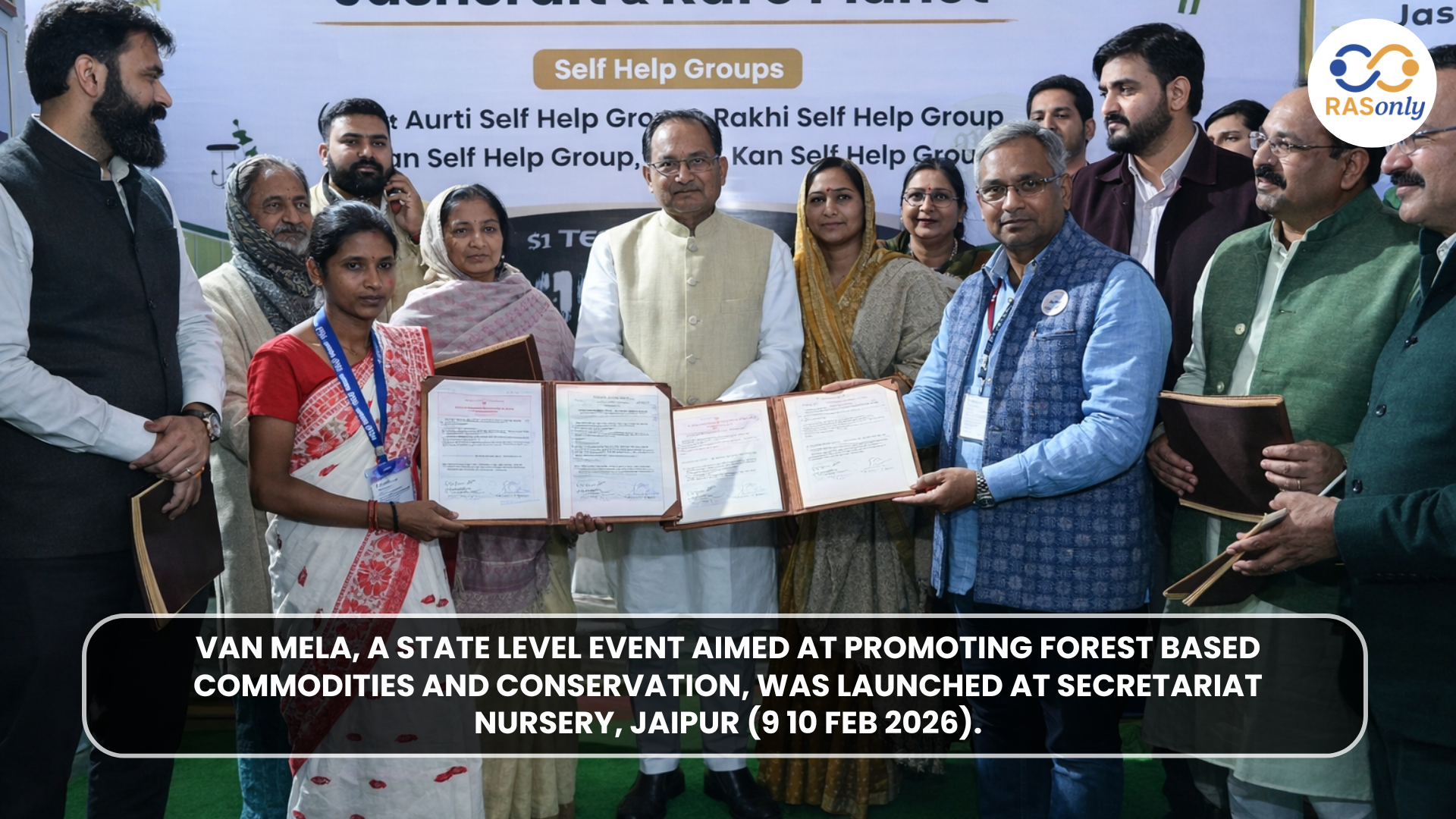
Rajasthan’s state-level Van Mela inaugurated in Jaipur
February 10, 2026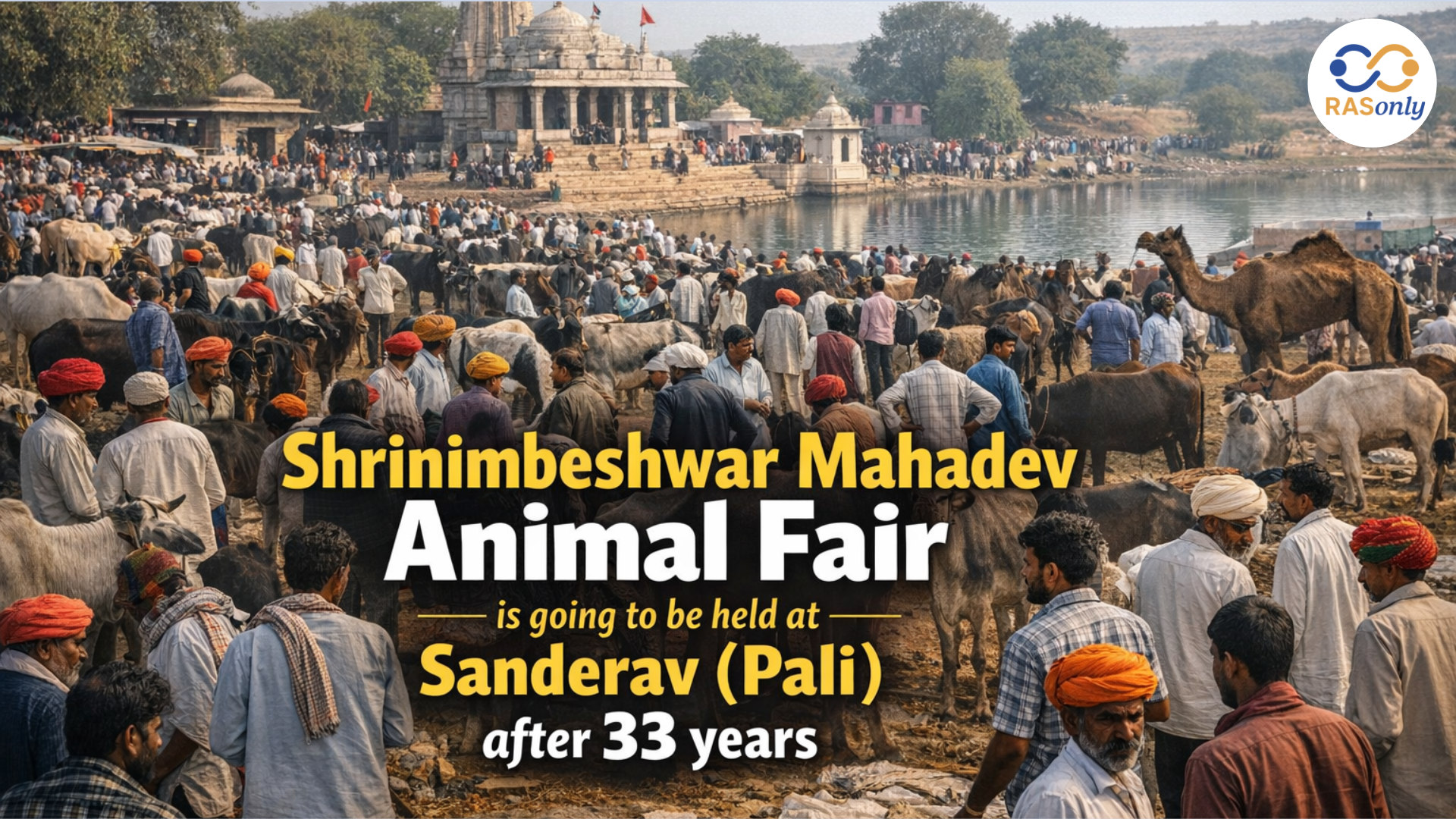
Shrinimbeshwar Mahadev Animal Fair returns to Sanderav after 33...
February 10, 2026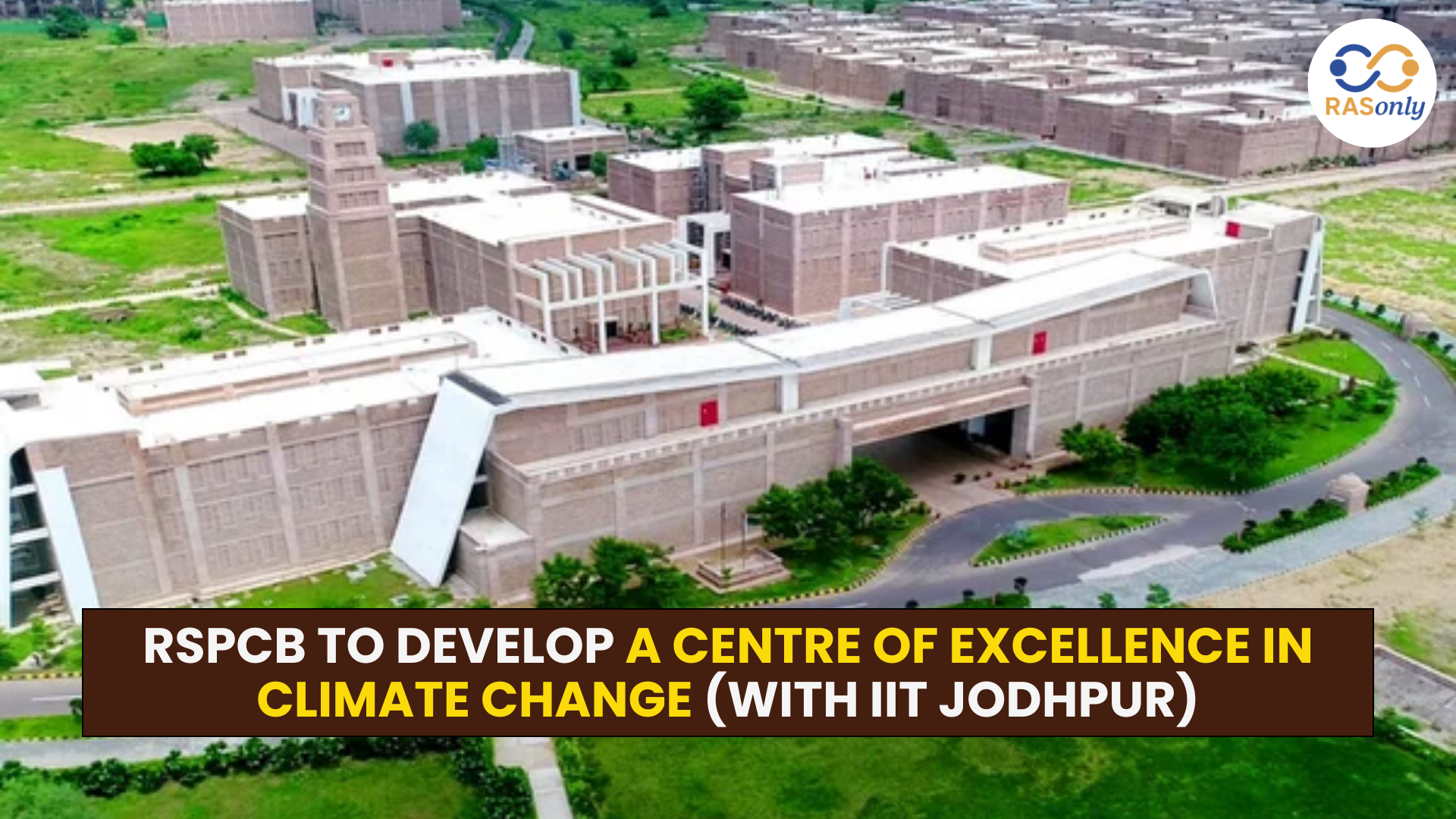
RSPCB signs MoUs with IIT Jodhpur & MNIT Jaipur...
February 10, 2026👉🏻 Register Today to Join Classes! 👍🏻
- Team RASOnly -
🎯 Benefits of RASOnly Coaching:
- ✅ 1:1 Mentorship with RAS Officers
- ✅ Experienced and Expert Faculty
- ✅ Free Library Access
- ✅ Daily Minimum 4 Hours Must
- ✅ Comprehensive Study Material
- ✅ Regular Tests & Performance Analysis
- ✅ Personalized Guidance & Doubt Solving
- ✅ Online & Offline Class Options
- ✅ Affordable Fees with Quality Education
Key Highlights:
- 👉🏻 3-Day Refund Policy
- 👉🏻 New Batch Starting from 04 August
- 👉🏻 Registration Amount: Only ₹1000

